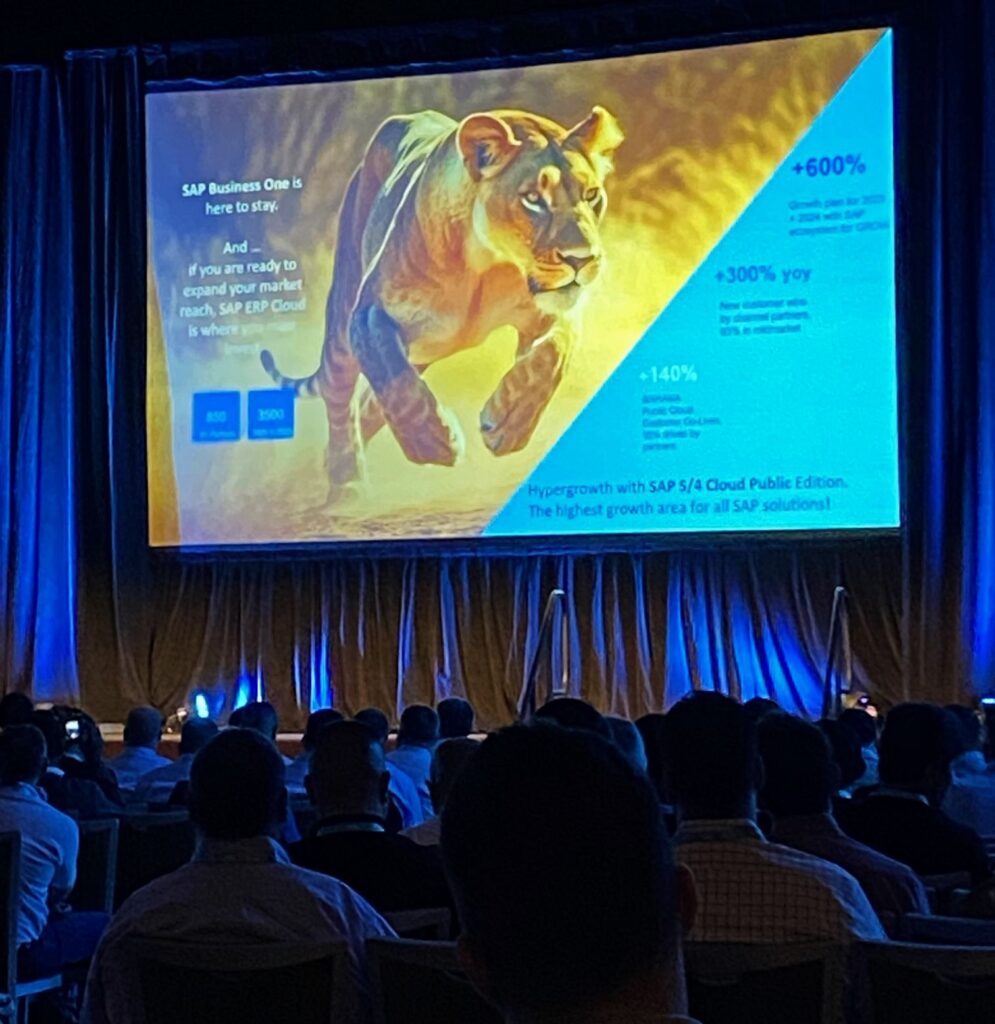Blow by Blow: How Spreadsheets Can Lead to Costly Errors

The Enduring Appeal of Excel Spreadsheets Despite the increased time required and the higher risk of errors, many organizations continue to rely on Excel spreadsheets for financial reporting and consolidation. This reliance persists largely due to Excel’s widespread use and familiarity among finance professionals. The extensive familiarity with Excel minimizes the need for training, allowing for quick adoption and seamless implementation. Most employees are comfortable with its interface and functionalities, making it a convenient and practical choice for many organizations. The acceptance of Excel is bolstered by finance teams’ long-standing familiarity with its interface, formulas, and overall functionality. Introducing new tools often faces resistance due to the inherent learning curve, making Excel a preferred option that reduces adoption barriers. Sample Scenario X Corporation is finalizing its quarterly financial report using a complex Excel spreadsheet to calculate revenue and expenses. While spreadsheets are powerful tools, their misuse can lead to significant errors in financial reporting. Here’s a breakdown of common errors that occur due to spreadsheet use 1. Data Entry Errors Imagine a spreadsheet with sales figures listed. One person accidentally enters $1,234 instead of $1,324. Impact: This seemingly small mistake throws off the entire sales total. In the final report, revenue might be underreported by $90. This discrepancy, though minor on its own, can snowball, leading to misinformed business decisions. Envision a financial projection spreadsheet where future revenue is calculated. A formula is mistakenly applied to only nine months instead of the entire year. Impact: The projected annual revenue is underreported by 25%, leading to incorrect financial planning and possibly influencing investment decisions based on faulty data. 2. Formula Errors Scenario: A formula in a cell references the wrong data range. For example, it might say “=SUM(B2)” instead of “=SUM(C2)” (assuming revenue data is in column C). Impact: The formula will pull incorrect numbers, potentially inflating or deflating a financial metric. In the Acme example, this could lead to misstated cost of goods sold. Such errors can significantly distort financial statements, leading to erroneous profitability metrics. In a spreadsheet tracking quarterly expenses, a formula intended to sum Q1 expenses is written as “=SUM(F2)” instead of “=SUM(G2)” (assuming Q1 expenses are in column G). Impact: The total for Q1 expenses will be inaccurate, leading to misreported financial statements and poor budgeting for subsequent quarters. 3. Hidden Errors A spreadsheet with a lot of complex formulas and nested calculations. Imagine someone copies and pastes a formula from one section to another but forgets to adjust cell references. Impact: Errors can be buried deep within the spreadsheet, making them difficult to detect. A seemingly innocuous copy-paste mistake can lead to big errors in the final report. Hidden errors are particularly dangerous because they often go unnoticed until it’s too late. 4. Lack of Version Control Scenario: Multiple versions of the spreadsheet floating around via email or saved on different computers. Impact: Confusion arises about which version is the most recent and accurate. This can lead to outdated or incorrect figures being used in the final report. Without proper version control, consistency and accuracy are compromised. 5. Inadequate User Training Scenario:An employee unfamiliar with Excel formulas tries to make changes to a complex spreadsheet. Impact: Accidental deletions, incorrect formatting, or misuse of functions can corrupt the data and lead to reporting errors. Proper training is essential to ensure that users understand how to manipulate spreadsheets without introducing errors. Consequences of Errors Misinformed Decision-Making: Management might make poor financial choices based on inaccurate data. This can lead to misguided strategies and resource allocation, affecting the company’s overall performance. Loss of Investor Confidence: If financial reports are unreliable, investors might lose trust in the company. Investor confidence is crucial for maintaining stock prices and securing future investments. Regulatory Penalties: In severe cases, the company could face fines from financial regulators. Compliance with financial regulations is mandatory, and errors in reporting can lead to substantial penalties and legal repercussions. Not too late to change While spreadsheets are indispensable tools in financial reporting, they come with inherent risks. By understanding and addressing common errors, companies like X Corporation can improve the accuracy of their financial reports and avoid costly mistakes. Implementing best practices such as thorough data verification, robust version control, and adequate user training and automation via a specialized financial reporting software can mitigate these risks and ensure reliable financial reporting.
The Global Accountant Shortage is Real

Right here, right now The global shortage of accountants is a pressing issue that has significant implications for businesses and economies worldwide. The U.S. alone is estimated to be short 340,000 accountants due to retiring professionals and lack of new entrants. Nearly 600 U.S. listed companies reported personnel-related weaknesses in internal financial controls in the first half of 2023, a 40.6% increase from 2019. From the supply side, the number of accounting graduates in the U.S. declined by 2.8% at the bachelor’s level and 8.4% at the master’s level in the 2019-2020 academic year. The total number of CPA exam takers in the U.S. dropped by 7% from 2021 to 2022, reaching the lowest level since 2006. But here’s a staggering statistic–around 75% of AICPA members are at or near retirement age. As a result, 87% of companies find it increasingly difficult to secure talent for essential accounting functions like financial reporting and analysis. Why is this happening? Retiring Baby Boomer Accountants: A significant number of accountants are reaching retirement age, leading to a substantial loss of experienced professionals in the field. Fewer Students Entering Accounting Programs: There has been a decline in the number of students pursuing accounting degrees and CPA certifications, partly due to the perceived lack of attractiveness of the profession compared to other fields like technology and finance. Accountants Leaving for Other Fields: Many accountants are transitioning to other careers that offer better pay, work-life balance, and opportunities for advancement. Impact on Businesses and Economies Challenges for Companies Difficulty Maintaining Accurate Financial Records: The shortage of accountants makes it challenging for companies to maintain accurate financial records, leading to potential errors and compliance issues. Increased Risk of Errors and Compliance Issues: With fewer accountants, the risk of financial misstatements and non-compliance with regulations increases, which can result in fines and damage to a company’s reputation. Lack of Financial Guidance for Decision-Making: Companies may struggle to make informed strategic decisions without adequate financial analysis and guidance from skilled accountants. Effects on Specific Industries Finance and Banking: These sectors rely heavily on accountants for managing financial data and ensuring regulatory compliance. A shortage can lead to slower processes and potential compliance issues. Healthcare: Accountants in healthcare handle billing, insurance claims, and financial management. A shortage can result in billing errors and financial discrepancies. Small Businesses: Small businesses often lack the resources to compete for top accounting talent, making it difficult to manage finances accurately and hindering growth. Government and Public Sector: Accountants play a key role in budgeting, auditing, and managing public funds. A shortage can lead to delays in public projects and inefficiencies in resource allocation. Broader Economic Impacts Slower Economic Growth: The shortage of accountants can slow down economic growth by hindering businesses’ ability to manage finances effectively and make informed decisions. Increased Financial Risks: The lack of skilled accountants increases the risk of financial misstatements and non-compliance, which can have broader economic implications. Some Strategies to Address the Shortage Investing in Accounting Technology and Automation: Implementing software to automate routine tasks can reduce the workload on accountants and allow them to focus on more strategic activities. Offering Internships and Training Programs: Providing opportunities for students and new graduates to gain practical experience can help attract more individuals to the profession. Utilizing Freelance and Outsourced Accountants: Outsourcing accounting tasks can help businesses manage their financial operations without the need for full-time hires. Encouraging Continuous Learning for Existing Staff: Promoting continuous professional development can help current employees stay updated with industry trends and enhance their skills. Improving Compensation and Benefits: Offering competitive salaries and benefits can attract and retain top accounting talent. Is there hope? The global shortage of accountants is a critical issue that requires immediate attention. By understanding the causes and impacts of the shortage, businesses can implement effective strategies to attract and retain accounting talent. Embracing technology, promoting continuous learning, and offering competitive compensation are essential steps in addressing the shortage and ensuring the future success of the accounting profession. Your next steps… 💡Click here to reduce time spent on period-end reporting 🔋Click here if you wish to solve 25+ Spreadsheet reporting issues 🔆 Click here to improve the accuracy and usability of generated reports 💯 Click here to decrease risk by providing on-demand access to the transaction detail behind every reported balance ☎️ Book a free, no-obligation walkthrough with Mondial to see how we can help you in financial reporting and consolidations just like one of our successful clients.
Difference between SOC 1 and SOC 2: Everything You Need to Know

Why is SOC important? Service Organization Control (SOC) reports are essential for organizations that provide services to other entities, as they demonstrate the effectiveness of their internal controls and data security practices. SOC 1 and SOC 2 are two types of SOC reports that serve different purposes and cater to different audiences. Understanding the differences between these reports is crucial for organizations to ensure compliance and maintain trust with their clients and stakeholders. What is a SOC 1 Report? A SOC 1 report, also known as a Service Organization Control 1 report, is designed to evaluate the internal controls of a service organization that are relevant to a user entity’s internal control over financial reporting (ICFR). It provides assurance to user entities and their auditors that the service organization’s controls are suitably designed and operating effectively. SOC 1 Report Types SOC 1 reports come in two types: SOC 1 Type 1: This report assesses the design and implementation of controls at a specific point in time. SOC 1 Type 2: This report evaluates the design, implementation, and operating effectiveness of controls over a specified period, typically six to twelve months. Who Needs a SOC 1 Report? Organizations that provide services that could impact their clients’ financial reporting processes are typically required to obtain a SOC 1 report. Examples include: Payroll processing providers Loan servicing organizations Employee benefit plan administrators Claims processing organizations Financial software-as-a-service (SaaS) providers What is a SOC 2 Report? A SOC 2 report, or Service Organization Control 2 report, is designed to evaluate the internal controls of a service organization related to the security, availability, processing integrity, confidentiality, and privacy of the systems and data it uses to process user information. SOC 2 Trust Services Criteria SOC 2 reports are based on the Trust Services Criteria (TSC) established by the American Institute of Certified Public Accountants (AICPA). The TSC consists of five principles: Security: Controls to protect against unauthorized access, disclosure, or damage to systems and data. Availability: Controls to ensure systems and data are available for operation and use. Processing Integrity: Controls to ensure system processing is complete, valid, accurate, timely, and authorized. Confidentiality: Controls to protect confidential information as committed or agreed. Privacy: Controls to protect personal information as committed or agreed. SOC 2 Report Types Like SOC 1 reports, SOC 2 reports also come in two types: SOC 2 Type 1: This report evaluates the design and implementation of controls at a specific point in time. SOC 2 Type 2: This report evaluates the design, implementation, and operating effectiveness of controls over a specified period, typically six to twelve months. Who Needs a SOC 2 Report? Organizations that handle, process, or store customer data, such as cloud service providers, data centers, and SaaS companies, are typically required to obtain a SOC 2 report. These reports provide assurance to clients, partners, and stakeholders that the organization has appropriate controls in place to protect their data. Key Differences between SOC 1 and SOC 2 Reports While both SOC 1 and SOC 2 reports evaluate internal controls, they differ in their focus and intended audience: Focus: SOC 1 reports focus on internal controls over financial reporting, while SOC 2 reports focus on controls related to data security, availability, processing integrity, confidentiality, and privacy. Audience: SOC 1 reports are primarily intended for user entities and their auditors, while SOC 2 reports are intended for a broader audience, including clients, partners, and stakeholders. Criteria: SOC 1 reports evaluate controls based on the organization’s identified control objectives, while SOC 2 reports evaluate controls based on the AICPA’s Trust Services Criteria. Distribution: SOC 1 reports are restricted to management, user entities, and their auditors, while SOC 2 reports can be shared more widely with clients, partners, and stakeholders (with some restrictions). Scope: SOC 1 reports cover internal controls related to financial reporting, while SOC 2 reports cover a broader range of controls related to data security, availability, processing integrity, confidentiality, and privacy. Choosing Between SOC 1 and SOC 2 Reports The decision to obtain a SOC 1 or SOC 2 report depends on the nature of the services provided by the organization and the specific requirements of its clients and stakeholders. Here are some general guidelines: If your organization provides services that could impact your clients’ financial reporting processes, you should consider obtaining a SOC 1 report. If your organization handles, processes, or stores customer data, you should consider obtaining a SOC 2 report. If your organization needs to demonstrate compliance with specific regulations or industry standards related to data security or privacy, a SOC 2 report may be more appropriate. It’s important to note that some organizations may need to obtain both SOC 1 and SOC 2 reports to meet the diverse requirements of their clients and stakeholders. Where Applicable SOC 1 and SOC 2 reports are essential tools for service organizations to demonstrate the effectiveness of their internal controls and data security practices. While SOC 1 reports focus on financial reporting controls, SOC 2 reports cover a broader range of controls related to data security, availability, processing integrity, confidentiality, and privacy. Understanding the differences between these reports is crucial for organizations to ensure compliance, maintain trust with their clients and stakeholders, and make informed decisions about which report(s) to obtain. Your next steps… 💡Click here to reduce time spent on period-end reporting 🔋Click here if you wish to solve 25+ Spreadsheet reporting issues 🔆 Click here to improve the accuracy and usability of generated reports 💯 Click here to decrease risk by providing on-demand access to the transaction detail behind every reported balance ☎️ Book a free, no-obligation walkthrough with Mondial to see how we can help you in financial reporting and consolidations just like one of our successful clients.
Tech Throwback: Microsoft FRX

Microsoft FRX: Everything you need to know Microsoft FRx was a financial reporting and analysis software designed to help organizations streamline their financial close processes and improve decision-making through enhanced reporting capabilities. It allowed users to create and generate financial statements and reports by pulling data directly from their accounting system’s general ledger. The history and evolution of FRx: FRx was originally developed by a company called FRx Software Corporation, founded in the 1980s. In March 2000, FRx Software was acquired by Great Plains Software, which was later acquired by Microsoft in 2001. FRx then became a part of the Microsoft Business Solutions division. After the acquisition, Microsoft continued developing and selling FRx as a financial reporting tool, often bundled with its Dynamics ERP products like GP, NAV, SL and AX. In the early 2000s, FRx was one of the leading financial reporting solutions for mid-market companies, with over 100,000 customer sites worldwide. It is integrated with over 50 accounting systems. In 2011, Microsoft announced it would discontinue FRx in favor of a new reporting application called Management Reporter as the successor product. While still supported for older Dynamics versions, FRx was effectively retired by 2014 as Microsoft pushed customers to transition to Management Reporter. Some key FRx product names included FRx Financial Reporter, FRx Forecaster (for budgeting) and FRx Report Manager. Little Known Facts about Microsoft FRX Integration with Financial Systems: Microsoft FRx could integrate with over 50 financial accounting systems, pulling financial information directly from the General Ledger to ensure up-to-date and accurate financial reporting. Real-Time Data Access: Employees could access real-time data and build, format, and distribute reports with minimal IT involvement, enhancing productivity and effectiveness. Reporting Features Report Generation: FRx allowed for the creation of accurate, comprehensive, and timely financial reports. It supported various Microsoft Dynamics ERP systems, including GP, SL, NAV, and AX. Output Options: Reports could be output in multiple formats, including Microsoft Office Excel, ASCII, FRx DrillDown Viewer, OLAP, and XBRL. Customizable Templates: The software included design wizards and customizable report templates, making it easier for users to create relevant financial reports quickly. User-Friendly Design Ease of Use: FRx was known for its user-friendly design, which included wizards and customizable templates, making it accessible to users with varying levels of financial knowledge. Flexible Report Design: The software allowed for flexible report design, enabling recipients to view information in an easy-to-understand format. Additional Capabilities Error Reduction: By pulling information directly from the general ledger, FRx reduced error-prone double entry. Customized Delivery Methods: Reports could be posted to a website with report-level permissions, allowing onsite and offsite users to access them easily without a connection to the general ledger FRX: What comes next? FRx was a pioneering financial reporting tool that Microsoft acquired and continued developing for about a decade before replacing it with the newer Management Reporter application as part of the MS Dynamics ERP suite. With its discontinuation, organizations were encouraged to transition to newer, supported solutions like Microsoft Management Reporter or other advanced financial reporting tools to ensure continued efficiency and compliance in their financial reporting processes. Opening the Floodgates From the ashes of Microsoft FRX came forth a slew of financial reporting software, each vying for dominance in the market. Oracle NetSuite Financial Reporting and SAP S/4HANA Financial Reporting offered robust solutions for large enterprises, while FloQast, Sage 300 Financial Reporter/ Sage Intacct and Sage General Ledger catered to mid-sized businesses. For those seeking industry-specific solutions, Epicor Kinetic–Financials emerged as a strong contender. Acumatica Reporting provided a flexible option for growing companies, while Workiva offered a cloud-based platform for consolidated reporting. Other multi-company, multi-national businesses found robust and complete cloud solutions in SAP Business One (B1) and Mondial Software. This diverse landscape of financial reporting software ensured that businesses of all sizes and industries could find a solution to meet their specific needs. Your next steps… 💡Click here to reduce time spent on period-end reporting 🔋Click here if you wish to solve 25+ Spreadsheet reporting issues 🔆 Click here to improve the accuracy and usability of generated reports 💯 Click here to decrease risk by providing on-demand access to the transaction detail behind every reported balance ☎️ Book a free, no-obligation walkthrough with Mondial to see how we can help you in financial reporting and consolidations just like one of our successful clients.
Why companies continue to rely on spreadsheets for financial reporting and consolidation

Spreadsheets since the beginning of time Many organizations continue to rely on Excel spreadsheets for financial reporting and consolidation despite the significant time required and the frequency with which errors typically occur. Widespread Use and Familiarity Excel is a ubiquitous tool for many finance professionals who are already well-versed in its use. This familiarity reduces the need for extensive training and allows for quick adoption and implementation. Excel’s widespread use means that most employees are comfortable with its interface and functionalities, making it a convenient choice for many organizations. Familiarity breeds acceptance. Finance teams are already accustomed to Excel’s interface, formulas, and overall functionality. Introducing a new tool often faces resistance due to the inherent learning curve involved. Sticking with the familiar Excel reduces adoption barriers. Other Factors Cost-Effectiveness For many businesses, especially smaller ones, Excel is a cost-effective solution. It is often included in the Microsoft Office suite, which many organizations already use for other purposes, making it an economical choice. The low cost of Excel compared to specialized accounting software makes it an attractive option for businesses with limited budgets. Reduced training costs Since most finance professionals are already proficient in using Excel, organizations can avoid significant training expenses when adopting or continuing to use Excel for financial processes. The learning curve is minimal compared to implementing a new specialized software solution. Institutional knowledge Over years of use, finance departments build up substantial institutional knowledge around using Excel for reporting, modeling, and analysis. This accumulated expertise is a valuable asset that organizations can continue leveraging by using Excel. Collaboration and sharing Excel files can be easily shared and understood across teams and organizations. The ubiquity of Excel means collaborators don’t need to learn a new interface or proprietary file formats to work together effectively. Availability across platforms Excel is available on Windows, Mac, web browsers, and mobile devices, allowing users to access and work with their spreadsheets from virtually anywhere using familiar interfaces. The risk you are taking while using spreadsheets Prone to Errors Excel is highly susceptible to human errors, such as incorrect data entry, formula mistakes, and misaligned cells. These errors can lead to significant inaccuracies in financial reports. The manual nature of data entry and formula creation in Excel increases the risk of errors, which can have serious financial implications. Lack of Control and Security Excel lacks robust version control and security features, making it difficult to track changes and protect sensitive financial data. This can lead to issues with data integrity and unauthorized access to financial information. The absence of built-in audit trails and compliance features makes Excel less secure compared to specialized accounting software. Time-Consuming The manual processes involved in data entry, validation, and consolidation in Excel are time-consuming and can lead to inefficiencies, especially as the volume of data grows. The need to manually update and verify data can slow down financial reporting processes and reduce overall productivity. Scalability Issues Excel struggles with handling large datasets and complex financial models, leading to performance issues and potential data integrity problems. As businesses grow and their financial data becomes more complex, Excel’s limitations become more apparent, necessitating the need for more scalable solutions. Advantages of using specialized cloud accounting software over spreasheets Centralized Data Repository Cloud reporting solutions like Mondial act as a centralized data repository, allowing you to consolidate financial data from multiple sources and ERPs into one place. This eliminates the need to juggle disparate spreadsheets and ensures data consistency across the organization. Multi-Currency and Multi-GAAP Support Mondial can handle multi-currency transactions and supports reporting under different accounting standards (GAAP, IFRS, etc.) seamlessly. This is a major challenge when using Excel for companies operating across multiple regions. Automated Consolidations and Eliminations Complex intercompany eliminations and consolidations across multiple entities can be automated in Mondial, saving significant time and effort compared to manual processes in Excel. Audit Trail and Compliance Every transaction in Mondial has a complete audit trail, ensuring compliance with regulatory requirements. Excel lacks robust audit trails and version control. Real-Time Updates Data can be updated automatically in real-time in Mondial as it is pulled directly from the ERP systems, ensuring reports are always based on the latest information. In Excel, consolidating updates is a manual process. Scalability and Performance Cloud solutions like Mondial are built to handle large data volumes and scale easily as a company grows, unlike Excel which can become sluggish with complex data sets. Collaboration and Access Controls Multiple users can access and collaborate on reports simultaneously in Mondial, with granular access controls. Concurrent editing in Excel can lead to version conflicts. Powerful Reporting Capabilities Mondial provides powerful reporting capabilities with drill-down to transaction level details, something that is very limited in Excel. Integration and Automation Cloud reporting tools can integrate with other systems via APIs, enabling automation of reporting processes that would be manual in Excel. But if you can’t shake off spreadsheet use… The Mondial Excel Add-In resolves these challenges by combining Mondial’s centralized financial data with Excel’s familiar and powerful reporting environment. This solution allows finance teams to securely access, analyse, and present financial data—without modifying their existing ERP systems or risking reporting inconsistencies. In short, the Mondial Excel Add-In removes the common challenges associated with standalone Excel-based reporting! The Mondial Excel Add-In delivers a solution that: ✔ Strengthens reporting accuracy while preserving the ease of Excel.✔ Eliminates data risks by ensuring every number is sourced from a secure, audit-ready repository.✔ Maximizes ERP investment ROI—without disrupting existing financial systems.✔ Empowers finance teams to generate reports without IT intervention. Test it here. Your next steps… 💡Click here to reduce time spent on period-end reporting 🔋Click here if you wish to solve 25+ Spreadsheet reporting issues 🔆 Click here to improve the accuracy and usability of generated reports 💯 Click here to decrease risk by providing on-demand access to the transaction detail behind every reported balance ☎️ Book a free, no-obligation walkthrough with Mondial to see how we can help you in financial reporting and consolidations just like one of our successful clients.
Mondial is at the Accountex London 2024!

What is ACCOUNTEX, London 2024? Accountex London 2024 is a prominent event in the accountancy and finance sector, scheduled to take place on 15-16 May 2024 at ExCeL London. This event is recognized as the world’s largest accountancy and finance expo, attracting over 10,000 attendees, including accountants, finance professionals, managing partners, C-level executives, practicing accountants, bookkeepers, auditors, tax specialists, IT directors, and more from across the UK and beyond What to expect at ACCOUNTEX, London 2024? The expo offers a comprehensive program with up to 16 free CPD (Continuing Professional Development) hours available through its education programme, which includes over 250 sessions held across 13 theatres. These sessions cover a wide range of topics such as AI, AML (Anti-Money Laundering), outsourcing/offshoring, branding, Companies House reform, mental health, and neurodiversity, among others. The sessions are delivered by thought-leaders and experts in the field, aiming to provide attendees with practical insights and knowledge that can be immediately applied to their work. In addition to the educational sessions, Accountex London 2024 will feature exhibitions from over 295 fintech companies, including industry giants like FreeAgent, Intuit QuickBooks, IRIS, Sage, TaxCalc, Wolters Kluwer, and Xero, as well as emerging brands like NORI HR, Signature Group, and Sovos. Attendees will have the opportunity to demo the latest tools and technologies, meet with suppliers, and get updates on new product launches WIIFY The event also emphasizes networking, allowing attendees to connect with peers and industry leaders, thereby growing their professional network. Accountex London 2024 has also announced a partnership with Mental Health UK as its official charity partner, highlighting the importance of mental health and wellbeing within the profession.Furthermore, Accountex London 2024 continues its commitment to sustainability with the ‘Trees for Attendees’ initiative, where a tree will be planted for every attendee in collaboration with Carma to help mitigate the event’s carbon footprint Book your free ticket to Accountex 2024 here Check out the Mondial Booth Catch Mondial in action at Booth/Stand: 1404A Witness Mondial’s 3-step process for yourself: Imports the already-validated management accounting data from your ERP systems as the foundation. Optional adjustment of this data through the use of reversible accounting journals in order to comply with local and global reporting and disclosure standards. Allows users to create output reports in the precise formats needed by management, parent companies or regulatory authorities. See you there!!! Your next steps… 💡Click here to reduce time spent on period-end reporting 🔋Click here if you wish to solve 25+ Spreadsheet reporting issues 🔆 Click here to improve the accuracy and usability of generated reports 💯 Click here to decrease risk by providing on-demand access to the transaction detail behind every reported balance ☎️ Book a free, no-obligation walkthrough with Mondial to see how we can help you in financial reporting and consolidations just like one of our successful clients.
The Role of Financial Reporting Specialists in Optimizing Reporting Technology

Financial Reporting Specialists Job Description Financial reporting specialists are professionals who are experts in preparing, analyzing, and presenting financial information for organizations. They are responsible for ensuring that financial statements and reports comply with relevant laws, regulations, and accounting standards. Their role involves preparing financial reports such as balance sheets, income statements, and cash flow statements, which are used by management, investors, and other stakeholders to assess the financial performance and position of the organization. Financial reporting specialists need to have a strong understanding of accounting principles and standards, as well as the ability to analyze complex financial data. They often work closely with other departments such as finance, accounting, and legal to ensure accurate and timely reporting. The Critical Role of Financial Reporting Specialists in Organizations Financial reporting specialists play a critical role in organizations by ensuring the accuracy and transparency of financial information. Here’s a breakdown of their importance: Financial Health Reporting: They generate financial statements that reflect the company’s financial performance, profitability, and overall health. These reports are crucial for investors, creditors, and regulators to assess the company’s financial standing. Compliance: Financial reporting specialists adhere to accounting standards (like Generally Accepted Accounting Principles or GAAP) and ensure reports comply with regulations. This maintains the integrity of financial data and avoids legal or financial repercussions. Decision Making: By analyzing financial results, they provide valuable insights to management. This helps with strategic decision-making, budgeting, and resource allocation. Transparency: Their work fosters trust and transparency with stakeholders. Accurate financial reports are essential for building confidence in the company’s financial health. In short, financial reporting specialists are the backbone of an organization’s financial communication. Their work empowers informed decision-making and ensures the financial health of the company is portrayed accurately. Financial Reporting Technologies That Financial Reporting Specialists Should Be Familiar With Financial Reporting Software: Financial reporting specialists should be well-versed in using specialized financial reporting software that enables efficient gathering, processing, analysis, and presentation of financial data in a structured and meaningful manner. These tools automate the generation of financial reports like income statements, balance sheets, and cash flow statements, providing accurate and up-to-date information for decision-making, regulatory compliance, and stakeholder communication. Examples of financial reporting software include Oracle NetSuite and FreshBooks. ERP Systems: Enterprise Resource Planning (ERP) systems integrate various business functions, including finance and accounting, and typically include advanced financial reporting capabilities with features like multi-dimensional reporting, consolidated reporting, and built-in financial analytics. Financial reporting specialists should be familiar with ERP systems to leverage their advanced analysis and drill-down reporting functions. BI Tools: Business Intelligence (BI) tools offer advanced analytics and reporting features, allowing users to create customized financial reports with interactive dashboards. These tools empower financial reporting specialists to conduct in-depth analysis and create insightful reports for decision-making. FP&A Software: Financial Planning and Analysis (FP&A) software focuses on financial planning, budgeting, forecasting, and financial reporting. FP&A tools automate manual processes in the finance department and often come with advanced reporting capabilities, including dashboards and real-time updates. Financial reporting specialists should be familiar with FP&A software to streamline financial planning and reporting processes. Tax Software: Tax reporting software helps organizations comply with tax regulations by integrating tax-related data into financial reports. These tools automate the preparation and submission of tax reports, saving time and ensuring accuracy in tax reporting. Financial reporting specialists should understand tax software to ensure compliance with tax requirements and accurate financial reporting. Challenges Faced by Financial Reporting Specialists Financial reporting specialists encounter several key challenges when implementing financial reporting technology. Firstly, maintaining accuracy and timeliness is paramount, particularly in decentralized work environments where team members are physically dispersed. Navigating regulatory changes poses another hurdle, as compliance with evolving standards from entities like the IFRS Foundation or FASB is imperative to avoid legal consequences or investor mistrust. Additionally, embracing technological advancements, such as cloud-based accounting software and automated analytics tools, can be daunting, especially when dealing with outdated systems or incompatible platforms that impede analysis and reporting. Ensuring data accuracy and integrity presents an ongoing challenge, with potential errors arising from manual entry, weak internal controls, or inadequate validation processes, emphasizing the importance of robust internal control mechanisms. Addressing ethical concerns, including preventing fraudulent activities, requires fostering a culture of integrity and implementing whistleblower mechanisms. Resource limitations such as budget constraints or a scarcity of skilled professionals may hinder organizations’ efforts to achieve accurate and efficient financial reporting, underscoring the need for investments in professional development opportunities to overcome this obstacle. What Are Some Best Practices For Training Financial Reporting Specialists On New Financial Reporting Technologies? Continuous Learning: Encouraging financial reporting specialists to attend training programs, seminars, and webinars focused on emerging technologies, regulatory changes, and industry trends can enhance their expertise in auditing and technology. Obtaining relevant certifications, such as those offered by organizations like ISACA, can also be instrumental in improving their skills. Utilizing Software and Tools: Providing training on how to effectively use software and tools to automate financial reporting and analysis processes can save time, reduce errors, and increase efficiency. Ensuring that specialists are trained on selecting the right tools that meet the organization’s specific needs and are compatible with existing systems is crucial. Analyzing Trends: Training specialists to analyze financial data to identify trends and patterns that can inform decision-making is essential. Using tools like graphs, charts, and dashboards to present data in a clear and concise manner can help specialists gain insights for strategic decision-making. Standardizing Financial Reporting: Implementing training programs to create a standardized process for financial reporting across all departments and teams can ensure consistency and accuracy in financial data. Leveraging technology, AI, and other tools to assist in standardizing financial reporting processes is beneficial. Collaboration with IT Professionals: Providing opportunities for financial reporting specialists to collaborate closely with IT professionals, cybersecurity specialists, data analysts, AI and ML experts, and cloud computing professionals can enhance their understanding of technology under review. This collaboration allows specialists to evaluate security risks, analyze data effectively, and assess the reliability
Mondial at the 2024 SAP Partner Summit for SME

Mondial was there at both the Phoenix and Madrid Summit Our amazing team at Mondial wasn’t just jet-setting to sunny destinations (although, Phoenix and Madrid don’t hurt!), they were building bridges with incredible VAR/SI partners at the SAP Business One Partner Summits! The summit was held across three global locations: Singapore (March 12-13), Phoenix, AZ, USA (April 10-12), and Madrid, Spain (April 23-25). This international approach facilitated a broad participation from various regions, accommodating different time zones and local audiences We had an incredible time connecting with so many fantastic SAP Partners, and we’re excited to collaborate with the partner ecosystem and help win more deals and keep your existing customers happy with Mondial’s powerful financial reporting solutions for businesses everywhere. Here are our Key Takeaways at the 2024 SAP Partner Summit for SME: Focus on Cloud and Innovation: The 2024 SAP Partner Summit for SME emphasized the transition of SAP Business One into a cloud-centric future, addressing the needs of the lower mid-market and small businesses. The summit also highlighted the development of additional capabilities for the SAP Business Technology Platform (SAP BTP) to support customer growth and business transformation Introduction of New Technologies: A significant announcement at the summit was the introduction of the new SAP generative AI assistant named “Joule,” designed to enhance the SAP user experience. This innovation is part of SAP’s ongoing efforts to integrate cutting-edge technology into their solutions Educational and Networking Opportunities: The summit provided a platform for valuable insights, networking opportunities, and educational resources. It aimed to keep partners informed, connected, and competitive within the SAP ecosystem. This was particularly beneficial for fostering collaborations and staying updated with the latest SAP technologies and market trends Keynote and Agenda Highlights: The agenda included important topics such as the SME Innovation Program, secure deployment of the SAP Business One Web Client, and strategies for running SAP Build Apps. These discussions were aimed at enabling partners to better utilize SAP solutions in enhancing their business operations and service offerings to SMEs A Big Shoutout Big shoutout to some of the awesome partners we met with at the Phoenix leg: Mark Vetzel –Synesis International, Inc.Daryl Goodman, CPA – VistaVu SolutionsPaul Cannon – Fisher TechnologyNicole Laurier – Fisher TechnologyTiran Mendis – InnormaxDavid Orosco –InnormaxErnest Orosco – InnormaxWolfgang Wanninger – LinkedWorldAdam Walker– Cloud4PartnersJon Liebold – Consensus InternationalDaniel Mittmann – CloudiaxScott Frandsen – ForgestikRyan Howe – Clients First Business Solutions FirstCesar Aviles – Clients First Business Solutions FirstBertus Jacobs – aclarosIrenae Jacobs – aclarosNeal Johnie –aclarosCameron Fischer –aclarosLen Reo – Attivo GroupChris Marocchi, MBA– Attivo Group It was also a pleasure meeting a number of SAP Partners at the SAP Summit in Madrid. Looking forward to working with you all in the near future. Advanced NetAmistaArtesapBeOneNorthComputechData UnitEnterpryzeIndus NovatorInecom GroupITM DevelppmentLakeLinked WorldMicroware Cloud ServicesMTCNewIntelligenceNTTN’Ware TechnologiesPercipere ConsultingQuintechSabiz Business SolutionsSeidor One Middle EastSeidor UKSilver Touch TechnologiesSMB Solutions Cloud ServicesSynesis International, IncSys-Dat GroupTruecommerceUniorgVersinoVision33 We can’t wait to see what the future holds! #Mondial #SAPBusinessOne #PartnerSummit #VAR #SI #FinancialReporting Your Next Steps… 💡Click here to reduce time spent on period-end reporting 🔋Click here if you wish to solve 25+ Spreadsheet reporting issues 🔆 Click here to improve the accuracy and usability of generated reports 💯 Click here to decrease risk by providing on-demand access to the transaction detail behind every reported balance ☎️ Book a free, no-obligation walkthrough with Mondial to see how we can help you in financial reporting and consolidations just like one of our successful clients.
What are the Key Features to look for in Financial Reporting Software

Financial Reporting Software, ERP Systems etc… Financial reporting software plays a crucial role in ensuring that organizations can accurately track, manage, and report their financial activities. This technology not only aids in compliance with various regulatory standards, but also supports strategic decision-making by providing comprehensive insights into financial performance. With the vast array of financial reporting tools available, identifying the key features that distinguish the best financial reporting software is essential for businesses aiming to enhance their financial reporting processes. Understanding Financial Reporting Software Financial reporting software is a specialized tool designed to automate and streamline the process of creating financial statements and reports. Over the years, financial reporting tools have evolved significantly, transforming from basic accounting software to sophisticated systems that offer real-time data processing, integration capabilities, and cloud-based solutions. This evolution has had a profound impact on business operations, enabling more efficient and accurate financial reporting Core Features of the Best Financial Reporting Software When evaluating financial reporting software, several core features stand out as essential for effective financial management: Real-time data processing and reporting: Access to real-time financial data enables timely decision-making and reporting. Customization options for various reporting needs: The ability to customize reports according to specific business requirements is crucial for meaningful financial analysis. Automation of repetitive tasks and report generation: Automating routine tasks reduces the risk of errors and frees up time for strategic activities. Support for International Financial Reporting Standards (IFRS) and Generally Accepted Accounting Principles (GAAP): Compliance with international and local accounting standards is non-negotiable for professional financial reporting. Other Items to consider: Functionality and Features: The software should offer comprehensive functionalities that meet your specific financial reporting and consolidation needs. Look for features like multi-currency support, automated consolidation processes, intercompany eliminations, and compliance with relevant accounting standards (e.g., IFRS, GAAP). Integration Capabilities: The software should easily integrate with your existing systems (e.g., ERP, CRM) to streamline workflows and ensure data accuracy. Integration reduces manual data entry and potential errors.Scalability: Consider whether the software can scale as your organization grows. It should handle increased transaction volumes and more complex organizational structures without significant performance degradation. User Interface (UI) and Usability: The user interface should be intuitive and user-friendly. Ease of use will encourage adoption among team members and reduce the need for extensive training. Security and Compliance: Ensure the software provides robust security features to protect sensitive financial data. Compliance with regulatory requirements, such as data protection laws, is also crucial. Support and Training: Good customer support and comprehensive training resources are essential. The availability of professional help can significantly impact the successful deployment and ongoing use of the software. Cost: Analyze the total cost of ownership, including upfront costs, licensing fees, maintenance, and potential upgrade expenses. Consider both short-term and long-term financial impacts. Vendor Reputation and Stability: Research the vendor’s reputation and stability in the market. A vendor with a proven track record and ongoing support and development commitment is more likely to offer a reliable, future-proof solution. Reporting Flexibility: The software should allow for customization in reporting to adapt to the unique financial processes and requirements of your organization. Customizable dashboards and the ability to generate ad-hoc reports are valuable features. Performance and Speed: Evaluate the performance of the software, especially its ability to process and consolidate large volumes of data efficiently. Fast processing speeds can significantly enhance productivity. Cloud-Based Financial Reporting Advantages Cloud-based financial reporting offers several advantages over traditional on-premise solutions: Accessibility and flexibility: Cloud-based solutions can be accessed from anywhere, providing flexibility for remote teams and outsourced financial reporting. Enhanced collaboration: Cloud services facilitate easier sharing and collaboration on financial reports among team members. Security and data protection: Modern cloud-based systems offer robust security measures to protect sensitive financial data. Scalability and cost-effectiveness: Cloud solutions can easily scale with business growth, offering cost-effective financial reporting solutions without the need for significant upfront investment. Safeguard and Maximize Your ERP Investment: Companies often invest significant time and resources (hundreds of hours and thousands of dollars) in implementing on-premise ERP systems. Cloud-based reporting solutions complements and extends this investment, not replaces it. By allowing for secure access from any location, Cloud-based reporting solutions streamline collaboration within your company. Departmental financial reporting details can be easily shared without the need for expensive, custom ERP reports. Customized Financial Reporting Solutions Customized financial reporting is vital for businesses with unique reporting needs or those operating in specialized industries. Tailored reports provide deeper insights into specific areas of the business, supporting more informed decision-making and strategic planning. Successful implementations of customized financial reporting often involve financial reporting consulting to ensure that the solution perfectly aligns with the business’s objectives. Compliance and Regulatory Standards Financial reporting software plays a critical role in ensuring compliance with regulatory standards such as SEC financial reporting requirements and GAAP financial reporting rules. By automating compliance-related tasks and providing built-in checks for accuracy, financial reporting systems help businesses maintain adherence to these critical standards. Decision-Making and Financial Reporting Accurate and transparent financial reporting is foundational to effective decision-making. By analyzing financial data, businesses can identify trends, assess performance, and make strategic decisions that drive growth and profitability. Robust financial reporting tools enable this level of analysis, providing the insights necessary for informed business strategy. Financial Reporting Accuracy and Transparency Accuracy and transparency in financial reporting are paramount for maintaining stakeholder trust and meeting regulatory obligations. Financial reporting software that emphasizes these aspects through features like audit trails, data validation, and clear reporting contributes to the overall integrity of the financial reporting process. Cost-Effective Financial Reporting Solutions While feature-rich financial reporting software is desirable, it’s also important to consider cost-effectiveness. Businesses should seek solutions that offer the right balance of functionality and affordability, taking into account the total cost of ownership and potential ROI. Outsourced financial reporting and cloud-based options often present cost-effective alternatives for businesses looking to optimize their financial reporting without overspending. The Decision As we look to the future of financial reporting systems, emerging trends such as
Strategies for Enhancing Cybersecurity in Accounting Departments

2024 saw an increase in Corporate Cyberattacks Today, accounting departments face a serious challenge: cyber attacks. They hold sensitive data and are targeted by hackers aiming for profit or disruption. These attacks pose risks like financial loss, damaged reputation, and legal issues due to compromised data integrity. As technology evolves and cyber threats become increasingly sophisticated, the need for robust cybersecurity practices has never been more pronounced. By understanding the scope and implications of this challenge, accounting professionals can take proactive steps to fortify their defenses, safeguard financial integrity, and uphold the trust and confidence of clients and stakeholders alike. Cyber Attacks Targeting Accounting Systems and Processes A cyber attack constitutes any malicious endeavor aimed at gaining unauthorized access to, damaging, or disrupting a computer system, network, or data. These attacks manifest in various forms: Invoice Fraud: In this type of attack, hackers gain access to the accounting system and manipulate invoices, changing the recipient bank account details. Unsuspecting employees then make payments to the fraudulent account, resulting in financial losses for the company. Account Takeover: Hackers may compromise employee credentials through methods like phishing or social engineering. Once they gain access to an employee’s account within the accounting system, they can manipulate financial records, initiate unauthorized transactions, or even divert funds. Denial of Service (DoS) Attacks: In a DoS attack, hackers flood the accounting system with a high volume of traffic, rendering it inaccessible to legitimate users. This disrupts critical accounting processes, such as payroll processing or financial reporting, leading to operational disruptions and financial losses. Insider Fraud: Similar to insider threats, insider fraud involves employees within the organization exploiting their access to the accounting system for illicit financial gain. This could include activities such as embezzlement, falsifying expenses, or manipulating financial records for personal benefit. Vendor Fraud: Hackers may impersonate legitimate vendors or suppliers within the accounting system, submitting fraudulent invoices for payment. If not detected, these fraudulent payments can result in financial losses for the company. 6 Common Motivations Behind these Cyber Attacks Financial Gain: One of the primary motivations behind cyber attacks on a company’s accounting system is financial gain. Attackers steal valuable data, such as client payment information, tax returns, or sensitive corporate records. This stolen data can be monetized through identity theft, fraud, or sold on the dark web for profit. Corporate Espionage: Competitors or foreign adversaries may target organizations to gain access to sensitive financial information, trade secrets, or proprietary data belonging to their clients. By infiltrating accounting systems, attackers can gather intelligence on clients’ financial strategies, mergers and acquisitions, or other confidential information that provides a competitive advantage. Extortion: Some cyber attacks on companies involve extortion tactics, where attackers threaten to disrupt operations or leak sensitive data unless a ransom is paid. For example, ransomware attacks encrypt critical accounting data, rendering it inaccessible until a ransom payment is made to obtain the decryption key. Hacktivism: Cyber attacks may be driven by ideological or political motives, as part of hacktivist campaigns aimed at promoting social or political causes. Hacktivist groups may target accounting systems perceived to be associated with controversial clients or unethical business practices, seeking to expose alleged wrongdoing or disrupt operations as a form of protest. Cyber Warfare: In some cases, nation-state actors may target accounting departments as part of cyber warfare or espionage campaigns aimed at undermining economic stability, gathering intelligence, or conducting sabotage against rival nations. Such attacks may involve sophisticated tactics aimed at compromising critical infrastructure, disrupting financial systems, or destabilizing economies. Reputation Damage: Attackers may seek to tarnish the reputation of an organization by compromising their systems and leaking sensitive client information or confidential internal communications. By exposing lapses in security or unethical behavior, attackers aim to undermine trust in the firm’s integrity and professionalism, causing reputational damage that may lead to client attrition and loss of business. The repercussions of cyber attacks on businesses can be severe, potentially leading to: Data Breaches: One of the most immediate and damaging effects of cyber threats is data breaches. Breaches can result in unauthorized access to sensitive client information, such as financial records, tax returns, and personal identifiable information (PII). This can lead to loss of trust among clients, reputational damage, and legal liabilities for the company. Financial Losses: Cyber attacks can also result in financial losses. This can occur through various means, including ransomware attacks demanding payment for decryption keys, theft of funds through fraudulent transactions, or costs associated with recovering from a cyber attack, such as forensic investigations and data restoration. Operational Disruption: Cyber threats can disrupt the day-to-day operations, causing downtime, loss of productivity, and delays in client services. For example, if a cyber attack compromises the firm’s IT infrastructure or accounting software, it may hinder the ability to perform critical tasks such as payroll processing, financial reporting, or tax preparation. Reputational Damage: The discovery of a cyber attack or data breach can damage the reputation of an organization. Clients may lose confidence in the firm’s ability to safeguard their sensitive information, leading to client attrition, negative publicity, and difficulty attracting new clients. Reputational damage can have long-lasting consequences for the firm’s brand and market standing. Regulatory Compliance Issues: Companies are subject to regulatory requirements governing data protection, privacy, and confidentiality. A cyber attack that compromises client data may result in non-compliance with regulations such as the Gramm-Leach-Bliley Act (GLBA) or the Health Insurance Portability and Accountability Act (HIPAA). Non-compliance can lead to regulatory penalties, fines, and legal consequences for the firm. Loss of Competitive Advantage: A cyber attack that exposes vulnerabilities in the firm’s security posture can erode its competitive advantage and drive clients to seek services from more secure alternatives. Strengthening Cybersecurity Defenses To mitigate the risk of cyber attacks in accounting processes and systems, organizations should implement robust cybersecurity measures such as: Employ robust authentication mechanisms, such as multi-factor authentication, to prevent unauthorized access to accounting systems. Multi-factor authentication (MFA) adds an extra layer of security by requiring users to provide multiple
